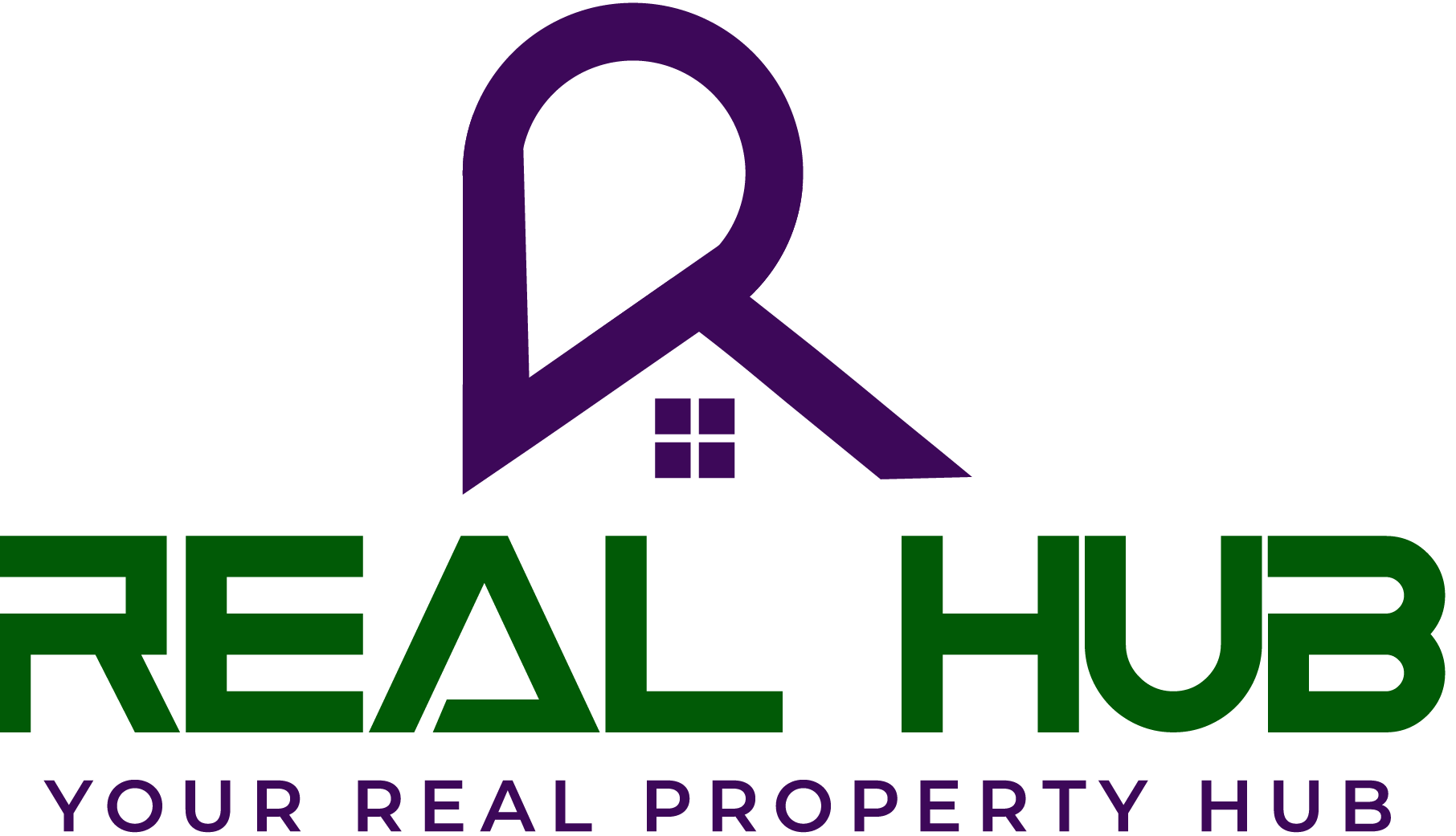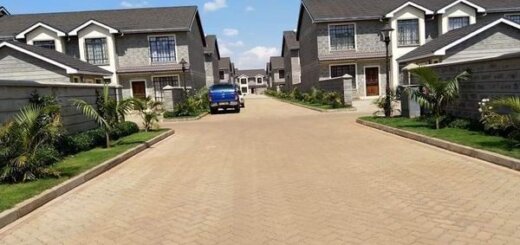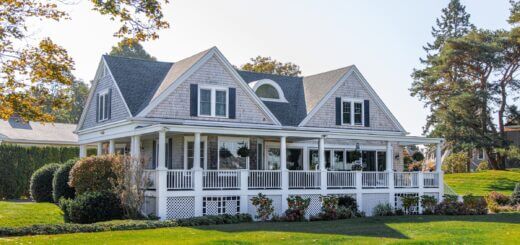Finding the Perfect Rental House in Nairobi: A Comprehensive Guide
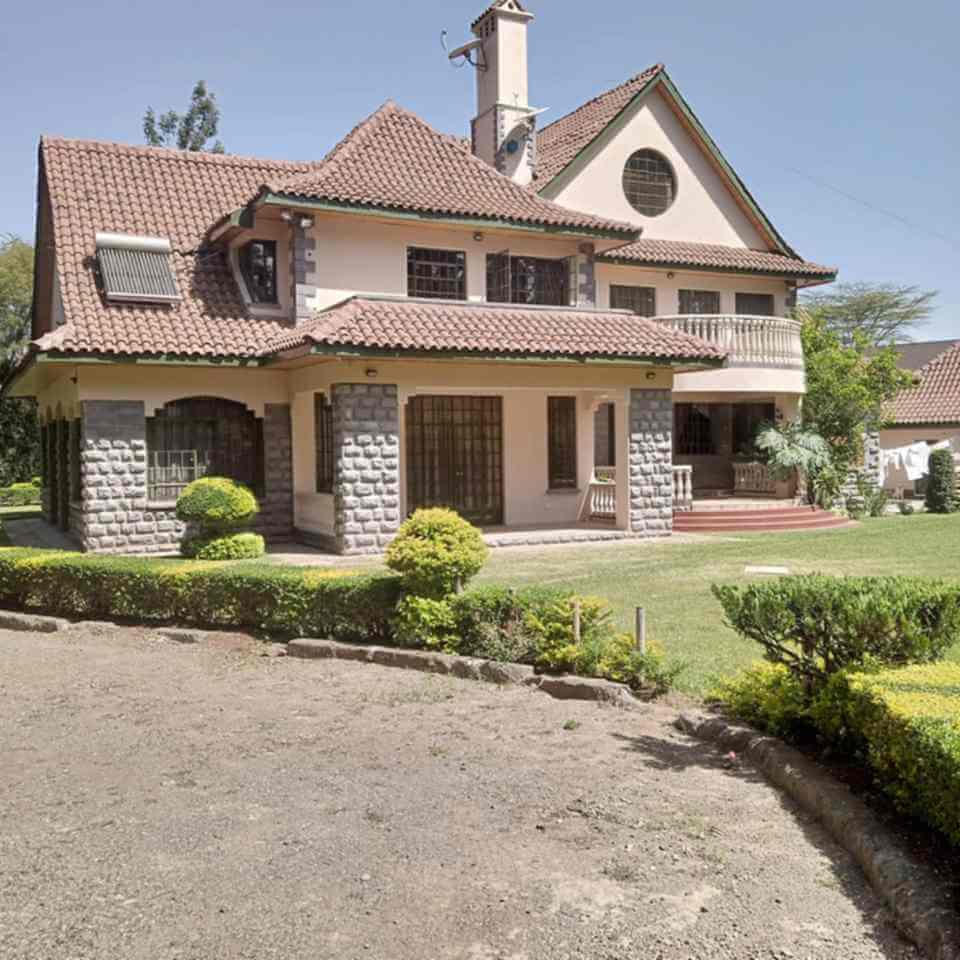
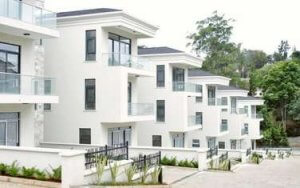
rental house in Nairobi
Nairobi, the bustling capital of Kenya, offers a diverse array of rental housing options catering to various preferences and budgets. Finding the right rental house in Nairobi can be a daunting task given the city’s vastness and the myriad of factors to consider. This guide aims to simplify your search by highlighting essential tips and considerations to help you find a rental house that meets your needs and expectations.
1. Understand Your Budget
Rental Costs
Firstly, you need to establish how much you can afford to pay in rent each month. It’s a good rule of thumb to ensure that your rent does not exceed 30% of your monthly income, as this allows you to manage other expenses without financial strain. When setting your budget, also consider the potential for rent increases in the future and whether you can sustain this long term.
Security Deposit
Most landlords require a security deposit before you move in, which is typically equivalent to one or two months’ rent. This deposit is meant to cover potential damages to the property during your tenancy. You should account for this initial outlay in your budget planning.
Utility Costs
While some rentals in Nairobi include utility costs as part of the rent, others do not. Utilities can include electricity, water, gas, and internet services. Ask the landlord about what is included and estimate monthly costs for utilities not covered. Remember to consider the cost of starting services, such as installation fees or deposits for utilities.
Moving Expenses
Moving into a new rental can come with additional costs, such as hiring movers, renting a moving truck, or buying new furniture and household items. These costs can add up quickly and should be included in your initial budget.
Maintenance Fees
Some rental properties, especially those in managed complexes or estates, might charge a monthly maintenance fee. These fees cover the costs of common area upkeep, security, garbage collection, and sometimes amenities like swimming pools or gym facilities.
Insurance
Renters’ insurance is not always mandatory but is highly recommended as it protects your personal belongings against theft or damage and could cover liability in case someone is injured in your rented home. The cost is relatively low but provides significant peace of mind.
Strategies for Managing Rental Costs
Here are a few strategies to help you manage your rental costs effectively:
- Prioritize Needs Over Wants: Focus on what you truly need in a rental property. Luxuries such as an extra bedroom or high-end amenities might be nice but can stretch your budget.
- Consider Roommates: Sharing a rental property with roommates can significantly reduce your individual cost burden. Make sure you choose roommates who are reliable and with whom you are likely to live comfortably.
- Negotiate Rent: Don’t be afraid to negotiate the rent with landlords, especially if you bring strengths like a good rental history or a longer lease commitment.
- Look for Inclusive Deals: Properties that include utilities or maintenance fees in the rent can help simplify budgeting and avoid unexpected costs.
2. Choose the Right Location
Selecting the right location is perhaps one of the most critical decisions when searching for a rental house in Nairobi. The city’s diverse neighborhoods offer various lifestyles and can significantly impact your daily routine and comfort. Here are key factors to consider when choosing the right location for your rental house in Nairobi:
Proximity to Essential Services
Consider how close the rental is to essential services such as supermarkets, hospitals, schools, and other educational institutions. For families with children, living near schools can reduce travel time and enhance safety. Similarly, easy access to medical facilities can provide peace of mind.
Workplace Accessibility
If you are working, consider the distance and travel time from the potential rental house to your workplace. Nairobi is notorious for its traffic jams; hence, living closer to work can save you many hours a week that would otherwise be spent in traffic, enhancing your quality of life.
Safety and Security
Safety is a prime concern in urban areas. Research the crime rates and general security of the neighborhoods you are considering. Some areas are equipped with enhanced community policing and private security patrols. Check whether the streets are well-lit at night and if there are security checkpoints or gated communities.
Social Amenities and Lifestyle
Different neighborhoods offer various social amenities that can match your lifestyle preferences. Areas like Kilimani, Westlands, and Karen are known for their vibrant nightlife, cafes, restaurants, and shopping malls. If you prefer a quieter, more suburban lifestyle, you might consider areas like Gigiri or Muthaiga.
Public Transport and Road Infrastructure
The availability of reliable public transport can significantly affect your living experience, especially if you do not own a private vehicle. Look for areas well-served by matatus, buses, and in the future, the Nairobi Commuter Rail service. Additionally, living near major roads can reduce the hassle of navigating local traffic but may also mean more noise and air pollution.
Community and Cultural Fit
Every neighborhood has its unique vibe and community. Spend some time in different areas to get a sense of where you might feel most at home. For instance, Eastleigh is known for its vibrant Somali culture and bustling business environment, while Lang’ata offers a more relaxed family-friendly atmosphere.
Long-Term Development Plans
It’s also wise to look into any future developments planned in the areas you’re considering. Infrastructure projects like new roads, malls, or business hubs can increase property value and improve living conditions but might also lead to increased noise and disruption during construction phases.
Environmental Quality
Consider the environmental aspects of the location. Areas away from industrial zones tend to have better air quality and are quieter. Proximity to green spaces like parks and forests can enhance your living experience by offering recreational activities and improving air quality.
 3. Check Accessibility and Transportation Links
3. Check Accessibility and Transportation Links
Transportation and accessibility are crucial factors when choosing a rental house in Nairobi, a city known for its vibrant lifestyle but also for its challenging traffic conditions. Here’s a more detailed look at why accessibility should be a top consideration and what specific transportation links to consider:
Proximity to Major Roads and Highways
Nairobi is served by several major roads and highways, including the Thika Superhighway, Mombasa Road, and the newer Nairobi Expressway. Living near these arteries can significantly cut down your travel time to various parts of the city. For instance, properties near the Nairobi Expressway provide quicker access to both the CBD and outskirts like Syokimau and Rongai, offering a balance between urban and more relaxed suburban living.
Public Transport Availability
Nairobi’s public transport system is anchored by matatus (minibuses), buses, and bodabodas (motorbikes). The city is also witnessing the growth of organized bus services like the Double M and the introduction of the Bus Rapid Transit (BRT) system which aims to streamline public transport. When searching for a rental, consider the proximity to bus stations and matatu terminals. Properties near dedicated BRT lanes, for example, promise more reliable and faster public transport options.
Traffic Patterns
Understanding the traffic flow and peak hours in different parts of Nairobi can save you many hours spent in traffic each week. Areas like Westlands, Kilimani, and parts of Ngong Road are notorious for heavy traffic during rush hours. Check if alternative routes are available from your potential rental location, and consider the typical traffic conditions when planning your daily commute.
Walkability
In some areas of Nairobi, being able to walk to essential services such as supermarkets, schools, clinics, or even entertainment spots can greatly enhance your living experience. Neighborhoods like Kileleshwa and Lavington are considered more walkable, with tree-lined sidewalks and amenities within easy reach. Assessing the walkability of an area can contribute significantly to your quality of life, reducing reliance on public transport or personal vehicles.
Safety of Commute
The safety of your daily commute is another important factor. This includes not only the general safety of the neighborhood but also the specific routes you may need to take during early mornings or late evenings. It’s beneficial to look for areas with well-lit streets and active community policing. Areas like Karen and parts of Lang’ata are generally considered safe and are well lit, which can be reassuring if you often come home late.
Access to Emerging Transport Infrastructure
Nairobi continues to develop its transport infrastructure, with ongoing projects like the expansion of the standard gauge railway (SGR) and improvements to inner-city roads. Being close to these developments can enhance property value over time and improve accessibility. Consider potential future benefits when choosing a location, as areas slated for infrastructure upgrades could offer increased convenience and accessibility in the long term.
4. Inspect the Property Thoroughly
A detailed inspection of a potential rental property in Nairobi is crucial to ensure that the house meets your standards for safety, comfort, and functionality. Here’s a comprehensive checklist to guide you through what to look for during your property inspection:
Structural Integrity
- Foundation and Walls: Check for significant cracks or signs of water damage in the foundation and walls. These could indicate structural problems that may lead to more serious issues later.
- Ceilings and Roof: Look at the ceilings for any stains or signs of leaks, which might suggest issues with the roof. Also, ask about the age and condition of the roof.
Plumbing and Water
- Water Pressure and Hot Water: Test all taps to check the water pressure and ensure that the hot water system is working efficiently. Low water pressure or lack of hot water can be a sign of plumbing issues.
- Drainage System: Flush toilets and run water in sinks and showers to see how well they drain. Slow drainage may point to blocked or damaged pipes.
Electrical Systems
- Light Fixtures and Sockets: Test all light switches and inspect plug sockets for damage or signs of electrical faults. Check whether there are enough sockets for your needs and that they are conveniently located.
- Circuit Breaker: Ensure the circuit breaker is easily accessible, properly labeled, and in good working condition. This is crucial for preventing electrical overloads and fires.
Doors and Windows
- Functionality: Open and close all doors and windows to check for ease of use and security. Make sure all locks are functioning properly and that keys are provided.
- Seals and Drafts: Check for drafts or poor sealing around doors and windows. Proper seals not only keep out pests but also improve energy efficiency by maintaining indoor temperatures.
Safety and Security
- Security Measures: Evaluate the adequacy of security measures such as window grills, security doors, alarm systems, and the presence of guards or surveillance cameras.
- Fire Safety: Check for smoke detectors, fire extinguishers, and an accessible escape route in case of fire. Ensure that safety equipment is in working order.
Appliances and Furnishings (if included)
- Condition and Age: If appliances like stoves, refrigerators, washing machines, or air conditioners are included, test them to ensure they are in working order. Check for signs of excessive wear or neglect.
- Furnishings: Evaluate the condition of any provided furnishings. Look for signs of damage or pests, especially in upholstered furniture.
Pest and Mold Inspection
- Signs of Pests: Look for signs of pest infestations, such as droppings, nests, or damage to woodwork. Nairobi can have issues with insects and rodents, so it’s important to check thoroughly.
- Mold and Dampness: Check for mold patches, especially in damp areas like bathrooms and kitchens. Mold can pose health risks and indicates moisture problems.
General Cleanliness and Maintenance
- Overall Cleanliness: Assess the overall cleanliness of the property. A well-maintained house usually indicates that the landlord will be responsive to maintenance requests.
- Landscaping and Exteriors: If there is a yard or garden, check its condition and discuss who is responsible for maintenance.
 5. Understand the Lease Agreement
5. Understand the Lease Agreement
The lease agreement is a critical document that outlines the legal and financial relationship between the landlord and the tenant. It is essential to understand every aspect of this agreement before signing, to avoid potential disputes and ensure that your rights and responsibilities are clear. Here are detailed points to consider when reviewing your lease agreement:
Lease Duration and Renewal Terms
The lease should clearly state the length of the tenancy, typically ranging from six months to one year, and the conditions under which it can be renewed. Understand whether the lease is automatically renewable or if you need to sign a new agreement at the end of the term. Check if there are any clauses regarding lease termination before the end date and the required notice period for both parties.
Rent Details
The agreement must specify the monthly rent amount, due dates, and acceptable payment methods (e.g., bank transfer, cheque, mobile money). It should also clarify whether the rent is subject to increase, under what circumstances, and how such increases will be communicated. Some leases include a rent review clause that outlines how and when rent can be adjusted.
Security Deposit
Most landlords require a security deposit to cover damages or unpaid rent. The lease should state the amount of the deposit, the conditions for its return, and any reasons part of it might be withheld (e.g., property damage or cleaning fees). Ensure that the terms for refunding the deposit are clear and reasonable.
Maintenance and Repairs
Understand your responsibilities versus those of the landlord when it comes to maintenance and repairs. The lease should delineate who is responsible for major repairs, routine maintenance, and emergency issues. It should also provide instructions on how to report problems and the expected response time.
Subletting and Roommates
If you might want to sublet the property or bring in roommates, the lease should address this. Some leases strictly prohibit subletting and others require landlord approval. Clarify these terms to avoid violating your lease agreement.
Restrictions
Lease agreements often include clauses that limit certain activities to ensure the property is well-maintained and community rules are followed. These restrictions might include rules against pets, noise levels, and alterations to the property (like painting walls or installing fixtures).
Termination Clauses
These clauses define how either party can terminate the lease early and the penalties for doing so. Understanding these terms is crucial to avoid unexpected costs or legal issues. Check for any clauses that allow the landlord to evict tenants and the process involved.
Legal Recourse
In case of disputes, the lease should specify the agreed method of resolution, whether it’s mediation, arbitration, or court proceedings. It should also state which country’s law governs the agreement, which is particularly important if either party is based overseas.
Miscellaneous Provisions
Finally, look for any additional clauses that might affect your use of the property. This can include rules about using common areas, parking facilities, and changes to the property like adding security systems or satellite dishes.
Professional Advice
If certain aspects of the lease seem unclear or unusual, it might be worthwhile to seek advice from a legal professional. They can provide clarity and suggest any changes to protect your interests.
6. Consider the Amenities
When searching for a rental house in Nairobi, the amenities included with the property can significantly enhance your living experience. Here’s a deeper look into various amenities to consider and why they might be important for your lifestyle:
Essential Amenities
- Water Supply and Storage: Nairobi faces periodic water shortages, making a reliable water supply a crucial amenity. Properties with large storage tanks or borehole access ensure you have a continuous water supply, crucial for daily living.
- Power Backup Systems: With frequent power outages in Nairobi, having a generator or solar power backup in your rental property can provide continuous electricity. This is particularly important if you work from home or have medical equipment that requires power.
- Security Features: Given security concerns in urban areas, evaluate the security measures in place. Look for properties with manned security gates, 24-hour CCTV surveillance, and perimeter walls topped with electric fences. Secure parking areas and biometric access are also beneficial.
- Waste Management: Proper waste disposal systems are essential for maintaining hygiene and comfort. Check if the rental property has regular, organized waste collection services and facilities for separating recyclable materials.
Lifestyle Amenities
- Internet and Cable Connectivity: In the digital age, good connectivity is vital. Check for pre-installed broadband internet and cable TV access, as installation can be cumbersome and sometimes expensive if starting from scratch.
- Leisure and Recreational Facilities: For those who value fitness and relaxation, amenities like a gym, swimming pool, sauna, or spa can be a great advantage. Gardens and playgrounds are important for families with children, providing a safe space for outdoor activities.
- Community Spaces: Some rental properties in Nairobi offer access to shared spaces like rooftops, party rooms, or barbeque areas. These can be great for socializing and hosting events without the need to leave the comfort of your home.
Practical Amenities
- Laundry Services: Properties with in-house laundry facilities, whether communal or in-unit, offer great convenience. Check for the availability of washing machines or designated laundry areas.
- Elevator Access: If you’re looking at apartment buildings, especially those with multiple floors, check for the availability of elevators. This is particularly important if you have mobility issues or live with elderly family members.
- Pet-Friendly Features: If you own a pet or plan to get one, look for a pet-friendly rental. Some properties have restrictions on pets, while others offer amenities like pet parks or grooming areas.
Evaluating Amenities
When evaluating these amenities, consider their direct impact on your daily life and well-being. Properties with comprehensive amenities might command a higher rent, but the convenience and lifestyle benefits can justify the extra cost. Additionally, think about the maintenance and upkeep provided by the landlord or property management, as this can significantly affect your enjoyment and use of these amenities.
7. Ask About the Neighborhood
Get a feel for the neighborhood by talking to current residents. They can provide insights that you might not notice during a short visit, such as community events, noise levels, traffic during different times of the day, and overall safety. Online forums and social media groups can also be valuable resources for gathering residents’ opinions and experiences.
8. Plan for Future Needs
Consider not only your immediate needs but also potential changes in the future. For instance, if you plan to start a family or bring in roommates, you might require extra space or additional amenities. Similarly, if you foresee a job change, consider renting in areas that are centrally located to avoid a potentially lengthy commute.
9. Negotiate the Rent
Negotiating the rent is a critical step in the rental process, which can lead to significant savings over the term of your lease. Here are some detailed strategies and considerations to help you effectively negotiate rent in Nairobi:
Understand Market Rates
Before entering negotiations, research the going rates in the area for similar properties. Use online real estate platforms, local listings, and even inquiries with nearby rental properties to gather information. This knowledge will provide you with a solid foundation to argue for a lower rent if the property you are interested in is priced above market rates.
Highlight Your Strengths as a Tenant
Position yourself as an ideal tenant. If you have a stable job, a good credit history, and excellent references from previous landlords, highlight these aspects. Landlords value tenants who are financially stable and likely to take good care of their property.
Offer Longer Lease Terms
Landlords prefer not having to look for new tenants frequently, as tenant turnover can be costly and time-consuming. By offering to sign a longer lease, you provide stability for the landlord. In return, they might be more willing to reduce the monthly rent or offer other favorable terms.
Ask About Trade-Offs
If the landlord is not willing to budge on the rent, consider asking for other concessions that can effectively lower your overall living costs. For instance, you could request free parking, inclusion of utilities in the rent, or the waiver of certain fees like those for pets or amenities.
Be Prepared to Compromise
While you might have a specific rent reduction in mind, it’s essential to be flexible. Be prepared to meet the landlord halfway or negotiate other aspects of the lease that could be beneficial, such as a later start date, which can save you money if you’re overlapping leases.
Timing and Approach
Timing can be everything in negotiations. If you’re searching during a period of low demand, such as during the off-peak season when fewer people are moving, landlords may be more willing to negotiate. When discussing rent, be polite and professional. Express your interest in the property and your desire to reach an agreement that works for both parties.
Get Everything in Writing
Once you’ve agreed on a rent price, make sure this is reflected in your lease agreement. Any verbal agreements should be formalized in writing to avoid future misunderstandings or disputes. Ensure that all the negotiated terms are clearly outlined in the contract before signing.
Be Ready to Walk Away
If negotiations aren’t leading to a fair agreement, be prepared to walk away. This can sometimes lead to a better offer from the landlord who realizes they may lose a good tenant. However, always have a backup plan or other potential rental options in mind.
10. Documentation and Receipts
Maintaining thorough documentation throughout your rental process is crucial for protecting your rights as a tenant and ensuring clarity in all dealings with your landlord. Here’s how you can effectively manage documentation and receipts during your tenancy:
Initial Lease Agreement
Ensure that every detail discussed and agreed upon is recorded in the lease agreement. This document should include the rent amount, payment methods, lease duration, security deposit details, and any special conditions like pet policies or maintenance responsibilities. Both you and the landlord should sign the lease, and each party should keep a copy.
Receipts for Payments
Always ask for a receipt for any payment you make related to the rental, including your security deposit, monthly rent, and any other fees. Receipts should include the date, the amount paid, the purpose of the payment, and the form of payment. If your landlord does not provide receipts automatically, request them as they are your proof of payment and can be essential in disputes or for tax purposes.
Record of Communication
Keep a log or copies of all communications with your landlord or property management. This includes emails, text messages, and notes from phone calls or in-person meetings. Documenting communication is particularly important when it involves requests for repairs or maintenance, notices about lease renewal or termination, and any agreements or promises made by the landlord.
Inspection Reports
When moving in and again when moving out, conduct a thorough inspection of the premises with your landlord. Document the condition of the property and ensure both parties agree by signing off on this report. Take photographs or videos as additional evidence. This can be crucial for recovering your security deposit at the end of your lease, as it provides a clear baseline for comparing the property’s condition over time.
Updates to Lease Terms
If there are any changes or amendments to the lease agreement during your tenancy, such as a pet addition or permission to modify a part of the property, ensure these are documented in writing and signed by both parties. Changes could also include adjustments to rent, lease duration, or property rules.
Financial Records
Keep your own records of all financial transactions related to the rental. This includes storing copies of checks, bank statements indicating rent payments, or digital transaction confirmations. These records can be helpful for personal budgeting, tax purposes, or legal situations.
Emergency Contacts and Maintenance Requests
Maintain a record of all maintenance requests and the responses received. Document the date of the request, the specific issue, and any follow-up actions taken. It’s also wise to have written confirmation of any emergency contacts provided by the landlord for maintenance or other urgent matters.
Formal Notices
If you need to issue formal notices to your landlord, such as notice to vacate or complaints about the property, send these in writing and keep copies for your records. Use certified mail or another method that provides proof of delivery to ensure there is no dispute about whether the notice was received.
Conclusion
Finding the right rental house in Nairobi requires careful consideration and planning. By setting a clear budget, choosing the right location, inspecting properties thoroughly, and understanding lease terms, you can significantly improve your chances of finding a home that suits your lifestyle and budget. Always take your time to make an informed decision, and use the resources available to you to ensure your rental experience is as smooth and enjoyable as possible.
